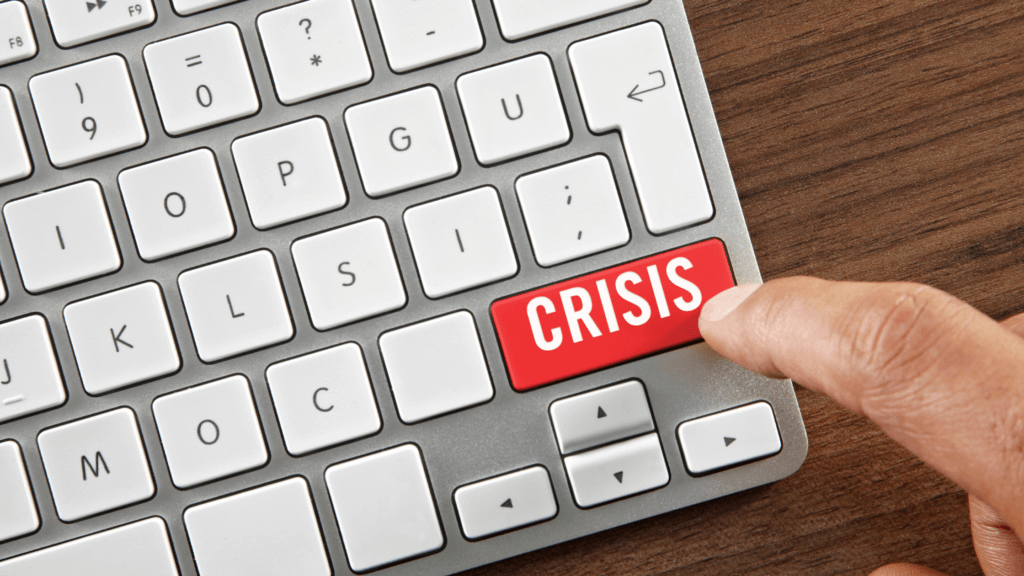When a crisis happens, our emotional stability is often the first thing to be affected. In those moments, it’s important to know which tools can help us regain balance and prevent things from getting worse. For many people, this comes down to two common options: meditation or therapy. Both can be really helpful, but they work in different ways and meet different needs, especially during times of emotional crisis.
In this article, we will explore how meditation and therapy can each be used in emergencies, their strengths, and how they can work together to help you get through tough times.
Understanding Emotional Crisis
An emotional crisis is a period of intense stress or feelings where someone might feel overwhelmed, helpless, or unable to cope. Common physical symptoms of an emotional crisis can include rapid heartbeat, sweating, shaking, or shortness of breath. Recognizing these signs can help you understand when you’re experiencing a crisis and take action accordingly. It can be caused by all kinds of life events, like the loss of a loved one, job stress, a breakup, receiving unexpected bad news, or even a build-up of low-key stress over time. During these times, it’s normal to feel like your usual ways of coping aren’t enough. This is when turning to meditation or therapy can provide a lifeline.

Meditation for Crisis Prevention
1. Instant Calm and Grounding
Meditation is a great way to bring about instant calm and grounding. When you’re in an overwhelming situation, meditation can help lower your body’s stress response, slow your heart rate, and help you feel stable again. Techniques like deep breathing (focusing on slow, deep breaths to calm the body and mind) or body scan meditation (mentally scanning through the body to notice and release tension) are especially good for grounding yourself when anxiety is spiraling out of control. Research shows that focusing on the breath can activate the parasympathetic nervous system, which helps reduce the “fight or flight” response.
2. Mindfulness to Regain Perspective
Mindfulness meditation helps us stay in the present moment rather than worrying about the future or dwelling on the past. During a crisis, it’s easy for our minds to jump to the worst-case scenario. A simple mindfulness exercise—like focusing on your five senses—can help bring you back to the present moment and cut down on the overwhelming rush of negative thoughts. This can help prevent the emotional crisis from getting worse.
3. Easily Accessible Anytime, Anywhere
One of the best things about meditation is that you can do it anytime and anywhere. You don’t need an appointment or any special equipment. Whether you’re in the middle of a workday, stuck in traffic, or alone in your room, meditation is always available as a self-soothing tool.

Therapy for Crisis Management
1. Professional Guidance and Emotional Support
While meditation can help manage symptoms in the moment, therapy offers something that meditation cannot: professional guidance and a supportive environment to address deeper issues. A licensed therapist provides a space where you can fully express your thoughts and feelings without fear of judgment. This level of empathetic support is especially important during moments of crisis when you need to understand why you’re feeling a certain way and gain insights that lead to long-term emotional healing.
2. Cognitive Restructuring and Problem Solving
Therapy, especially Cognitive Behavioral Therapy (CBT), provides structured methods for reshaping negative thoughts. Cognitive restructuring involves identifying negative or irrational thoughts and replacing them with more balanced, realistic ones. During a crisis, your thoughts might become distorted, leading to intense negative feelings. Therapists are trained to help reframe these thoughts and introduce healthier ways of coping. This kind of problem-solving can help you not only manage the current crisis but also prepare for future challenges.
3. Crisis-Specific Techniques
Therapists are equipped with various techniques to handle acute emotional distress, such as grounding techniques for anxiety attacks or emotional regulation tools for intense feelings. These targeted interventions are especially useful during times of crisis because they address specific issues—whether it’s panic, grief, or anger—in a personalized way that meditation might not fully achieve.
Other Self-Help Tools to Alleviate Stress
1. Breathing Exercises for Stress Relief
Breathing exercises are powerful tools for reducing stress on a physical level. Techniques like 4-7-8 breathing or box breathing (inhaling for 4 seconds, holding for 4 seconds, exhaling for 4 seconds, and holding again for 4 seconds) can help activate the parasympathetic nervous system, lowering heart rate and blood pressure. Regularly practicing these exercises can help you manage stress, calm your mind, and bring a sense of control during tough times. Including breathing exercises in your crisis toolkit can offer fast relief when anxiety peaks, giving you a way to reset your body’s stress response.
2. Creating Your Own Crisis Toolkit
In her book Why Has Nobody Told Me This Before: Everyday Tools for Life’s Ups and Downs, Dr. Julie Smith talks about creating a personal toolkit to use during a crisis. This toolkit can be a physical box filled with items that bring comfort and help calm you during emotional turmoil. Items like aromatic oils, a journal, your favorite tea, or a warm blanket can be incredibly soothing during a crisis. The idea is to prepare for a crisis ahead of time so that you have these comforting tools ready when needed. By choosing items that calm and ground you, you can manage stress better and prevent things from getting worse. A well-prepared crisis toolkit allows you to take control of your emotional well-being and helps you feel more prepared.
3. Short-Term Relief, Long-Term Change
Meditation provides instant relief by helping to reduce stress in the short term, while therapy works to create long-lasting change. These two methods can be used together—meditation for managing immediate symptoms and therapy for processing deeper emotions and triggers. For example, if someone is feeling anxious because of work pressure, meditation can help calm their nerves before a stressful meeting, while therapy can help them understand and address the root causes of their work-related stress.
4. Empowering Self-Sufficiency
One of the most empowering aspects of combining meditation with therapy is that it encourages self-sufficiency. Meditation offers tools you can use independently whenever you need them, while therapy gives you deeper insights into your emotions. Together, they provide both immediate relief during a crisis and the understanding needed to grow beyond it.
5. Talking to SafeAI Companion
SafeAI companion can be a helpful supplement for immediate help during moments of emotional distress. For example, it can be particularly effective when you need someone to listen immediately but can’t access a therapist, or when you’re trying to work through day-to-day stressors like work challenges or personal conflicts. It gives you a way to express your feelings and receive supportive responses quickly. Sometimes, talking to an AI companion can help you release some of the stress and gain clarity. However, it is important to remember that SafeAI also aims to connect digital support with real-life intervention. Through additional features, you can access information and connect with real therapists or crisis helplines when needed. This is one of the tools in your mental health and wellness toolkit, but knowing when to reach out for real human help is also very important.

When to Choose Meditation
- When you need immediate relief or calming down.
- When you’re alone and need to manage symptoms in the moment.
- When you want to establish a practice that supports long-term mental health and resilience.
Example
Imagine you’re experiencing a sudden panic attack before a big presentation. Practicing deep breathing for five minutes can significantly reduce the symptoms, helping you feel more centered and ready to move forward.
When to Seek Therapy
- When you feel overwhelmed by the crisis and struggle to cope.
- When you need a deeper understanding of your feelings and thought patterns.
- When symptoms of anxiety, depression, or trauma are constant and interfere with your daily life.
Example
If you are feeling hopeless and unable to do daily activities because of a breakup, therapy can help you understand these emotions, develop coping strategies, and slowly rebuild your confidence.
When to Apply Other Self-Help Methods
- When you need an immediate distraction or something that brings comfort, like breathing exercises, using aromatic oils, or journaling.
- When you want to manage mild anxiety or stress without external help.
- When you want to create a routine that supports general well-being without focusing on deeper emotional issues.
Example
If you are feeling overwhelmed after a busy day, using breathing exercises or spending time with a favorite hobby can help alleviate stress without requiring professional intervention.
Conclusion
Both meditation and therapy offer valuable tools for crisis prevention and emotional regulation, but they serve different needs. Meditation can be done anywhere, providing immediate relief and grounding, while therapy offers the professional support needed to dig deeper and build long-term resilience. By understanding what each method offers, you can make better decisions about which approach—or combination of both—is right for you during a crisis.
If you’re going through a hard time, consider using both meditation and therapy in your self-care routine. Try a simple meditation technique today to experience its calming effects, and reach out to a therapist if you need deeper support. Remember, asking for help and giving yourself the tools to cope is one of the bravest things you can do.

